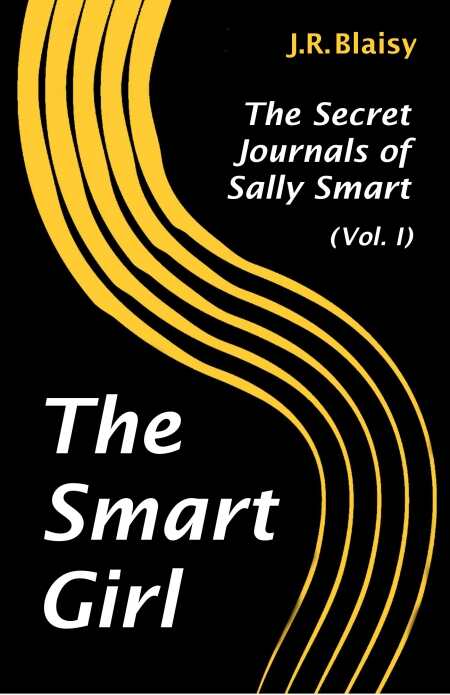The Smart Girl
The Secret Journals of Sally Smart (Volume One)
This humorous, bouncy send-up of British politics and journalism is consistent and clever.
Sally Jane Smart is a celebrity-worshipping Brit whose job as a journalist gets her caught up in strange, sordid political circles, and she recounts her story in a secret journal the powers-that-be don’t want her to write. When Smart is commissioned to follow the prime minister to comply with a humorously named Campaign for Lots of Openness, Truth and Honesty in Government (CLOTHING), she is exposed to the PM’s bizarre behavior and becomes a witness to the murder of a member of Parliament. What follows this encounter is a series of surreal interactions with an eccentric family, a brief career in espionage, and a dizzied foray into the life of a celebrity.
J. R. Blaisy approaches The Smart Girl with a clever dose of political satire, commenting on the incompetence of politicians and their immoral antics. The beginning is strong, and opens in on the action with a warning that the protagonist shouldn’t be recounting her strange experiences in her journal. This cloaks the novel in appealing suspense. The voice is unique, recalling events and conversations with phrases one would hear in active speech; for example, “he was like” is employed often to introduce dialogue. This fresh tone livens up what many would consider a dull topic—politics—and, in a way, makes plain its ridiculousness. Smart’s lack of respect for politicians, most evident when she talks about them in her journal like they are scandal-plagued celebrities, is contagious.
This sharp and funny satire, however, fades quickly. Though a novel written in the style of a journal should be casual, at times The Smart Girl is too much so, wandering in its telling of a strange journey through the upper crust of British society.
Smart is not a likable character; while this is acceptable, she doesn’t possess redeeming qualities that create a sense of empathy and communion to balance her unfavorable personality. Blaisy is thorough in presenting Smart as a shallow party girl who spends several tangents recounting her cute outfits and noting how sexy she looks before continuing with her story. Smart also lacks professional acumen as a journalist; she admits to fabricating quotes because she was celebrity-spying during an interview rather than listening to her source.
The plot is also peppered with some rather unbelievable scenes: the ritualistic drinking of special potions by the prime minister; random hallucinations by Smart of an evil twin; and sex scenes between Smart and, at various times, an elderly man, a seventeen-year-old boy, and a female celebrity. Some surprising, entwining plot lines create a confusing web in which, for instance, Smart is recruited by a lord to spy on a politician, is then asked to spy on a fellow spy, who then asks her to dig up dirt on the lord who commissioned her in the first place.
Blaisy is consistent and clever in crafting this unusual story in the form of a journal with humorous, bouncy, and straightforward writing. The plot, however, requires a harnessing of its more outlandish scenes into a concentrated novel that emphasizes its obvious humor and continues its smart commentary on contemporary politics.
Reviewed by
Shelley Mae Hazen
Disclosure: This article is not an endorsement, but a review. The publisher of this book provided free copies of the book and paid a small fee to have their book reviewed by a professional reviewer. Foreword Reviews and Clarion Reviews make no guarantee that the publisher will receive a positive review. Foreword Magazine, Inc. is disclosing this in accordance with the Federal Trade Commission’s 16 CFR, Part 255.

